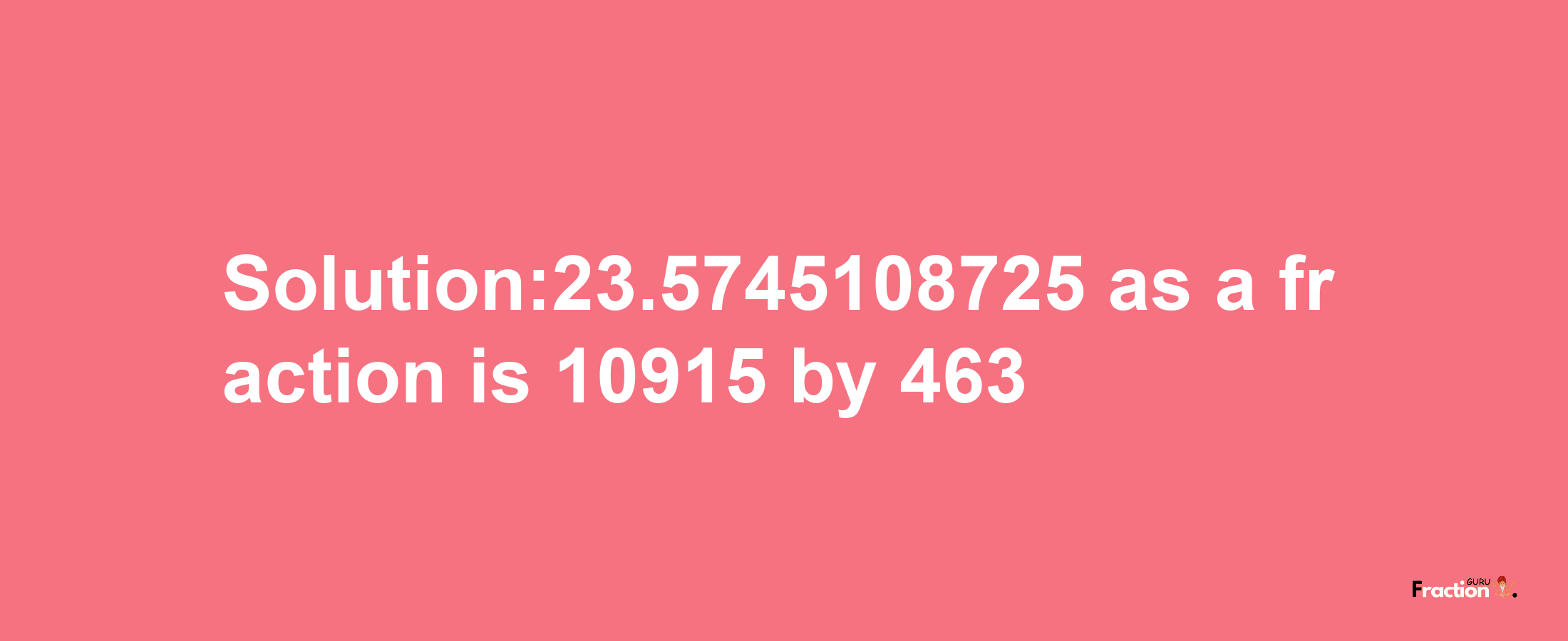Step 1:
The first step to converting 23.5745108725 to a fraction is to re-write 23.5745108725 in the form p/q where p and q are both positive integers. To start with, 23.5745108725 can be written as simply 23.5745108725/1 to technically be written as a fraction.
Step 2:
Next, we will count the number of fractional digits after the decimal point in 23.5745108725, which in this case is 10. For however many digits after the decimal point there are, we will multiply the numerator and denominator of 23.5745108725/1 each by 10 to the power of that many digits. So, in this case, we will multiply the numerator and denominator of 23.5745108725/1 each by 10000000000:
Step 3:
Now the last step is to simplify the fraction (if possible) by finding similar factors and cancelling them out, which leads to the following answer for 23.5745108725 as a fraction:
10915/463 / 1


